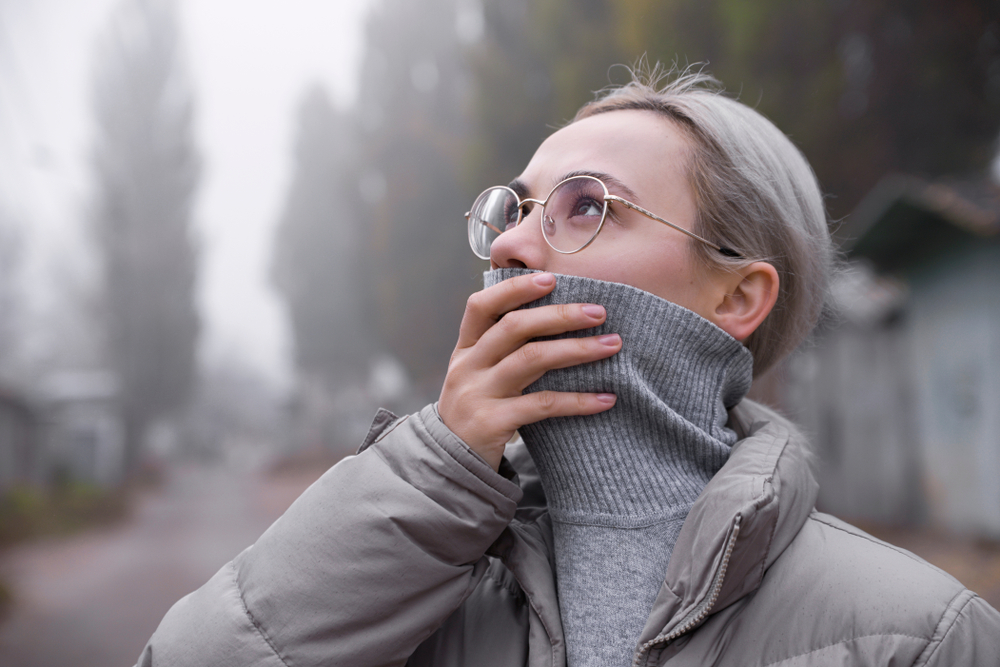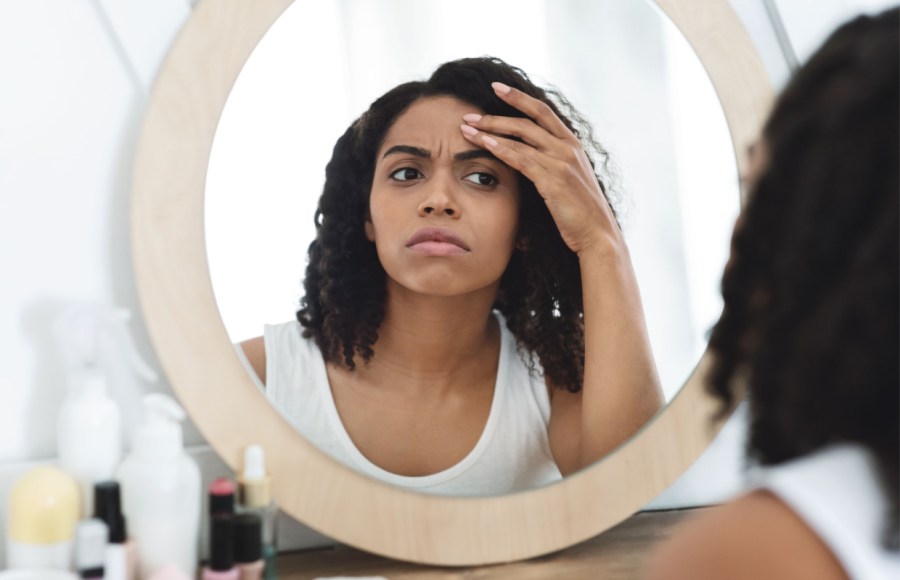Whether or not you look older or younger than your calendar age doesn’t just depend on your genes. A cocktail of factors determine how fast you age. Let’s take a closer look at the main causes of premature ageing, which could be making you look and feel old beyond your years…
The physical signs of ageing may be inevitable, but the pace at which they occur isn’t. It’s down to a mix of biological ‘intrinsic’ programming and external or ‘extrinsic’ factors. And the good news is, a huge body of scientific research highlights just how much control we have over the process.
Related – Ageing and fitness: how to stay fit through the decades
Research from the University of Gothenburg in Sweden has shown that we don’t purely ‘inherit’ longevity – it’s the sum total of our lifestyle habits. Meanwhile, a large study by the Public Library of Science Medicine in the UK has established that simple lifestyle changes, such as regular exercise, low alcohol intake and not smoking, can add up to 14 years to your life.
Here are the main causes of premature ageing to be aware of…
7 main causes of premature ageing

Sedentary lifestyle
Exercise, or rather a lack of it, is one of the most powerful causes contributing to premature ageing – internally and externally. Staying active helps prevent many conditions and illnesses associated with old age, including heart disease, dementia and osteoporosis. It keeps you mobile for longer and, by boosting your circulation, makes your skin radiant. But, crucially, exercise also works at a cellular level and, as a result, strengthens your skeleton, improves your digestion and enlarges your heart.
A study at King’s College, London, and the National Institute on Ageing, Maryland in the US, found a couch potato lifestyle can biologically age you by up to 10 years by shortening chain-like structures called telomeres, which work to protect DNA.
Related: 26 ways to be more active throughout the day
Poor diet
Eating healthily is crucial for maintaining a healthy weight and preventing age-related diseases, and research shows it will also keep your skin looking youthful too. Choosing the right kind of foods – namely antioxidant-rich fruit and vegetables – can counteract the ageing effects of pesky free radicals (see below for the lowdown on these damaging scavengers). Drinking plenty of water and eating healthy fats, such as plant oils, are essential for keeping your complexion hydrated and plump.
In contrast, an excess of sugary, processed foods can accelerate the breakdown of collagen and elastin fibres, which act as your skin’s scaffolding. Eating too much saturated animal fat can overburden your heart and your liver, resulting in a dull and lifeless complexion.
Related: 21-day meal plan: kickstart your healthy eating journey
Smoking
There’s no part of your body that isn’t affected by smoking. It’s detrimental to skin; not only does it decrease oxygen supply so your complexion appears dull and dehydrated, it also generates free radicals and causes those characteristic ‘inhale’ wrinkles around the mouth.
It’s said that regular smokers will eventually look 10 to 20 years older than their natural age, and no area of skin is left unsullied, according to experts at the University of Michigan in the US. Inside your body, smoking interferes with the renewal of bones, reducing their density, contributes to the furring of the arteries – a process called atherosclerosis – damages your lungs and significantly increases the likelihood of oral health problems, such as tooth loss.

Sun
In many ways a blast of sunshine is positively life-enhancing; it flushes your body with vitamin D, which is vital for a healthy immune system, balanced mood and strong bones. And, of course, aesthetically, sun-kissed skin has a natural, healthy glow.
However, too much sun can be a bad thing. As well as upping your risk of skin cancer, sun exposure is recognised as one of most potent complexion-agers, causing, according to dermatologists, a whopping 80 per cent of age-related skin damage. It can contribute to age spots, wrinkles, pigmentation and loss of elasticity. Plus, it ages your hair and eyes. By adopting healthy sun habits, you can protect yourself without compromising your wider health.
Related: 9 best sports sunglasses for women
Stress
Stress used to be merely seen as a state of mind. Now, there’s increasing evidence that chronic and prolonged episodes can compromise your health and age your body. Research shows it can disrupt sleep, dampen your immune system, contribute to raised blood pressure, and result in weight gain – which are all ageing. And don’t forget that it can also directly contribute to the physical signs of ageing – all that frowning can lead to permanent lines on your forehead!
Researchers at Case Western Reserve University in Cleveland, Ohio in the US who studied identical twins, who should age at a similar rate, found that a divorced twin looked almost two years older than their sibling who was single or married. The scientists suggest it was the sustained periods of stress that the divorced twins had been through that was one of the biggest factors in how much faster they aged. And your hair can suffer too – anxiety can thin and accelerate the greying process.
Related: 8 best calming foods for stress relief
Alcohol
An occasional tipple won’t do you any harm – in fact various studies, including one on heart disease, published in the British Medical Journal, show that moderate drinking is beneficial.
However, excess long-term consumption contributes to liver disease, heart problems, weakened bones and has been highlighted as a risk factor in breast cancer. And it’s bad for your skin too. Alcohol can dehydrate your complexion, damage elastin and collagen, cause sensitivity and result in broken veins and a ruddy hue.
Related: Calories in alcohol chart: what has the least & most?

Pollution
On a day-to-day basis, we’re bombarded by an array of polluting particles – from paint fumes to chemical air-fresheners to the ultra-fine dust from photocopiers and toxic car exhaust emissions. Our lungs are, without doubt, affected – but so, too, is our skin.
According to a study conducted at Leibniz Research Institute for Environmental Medicine in Dusseldorf in Germany, the higher the concentration of traffic-related airborne particles, the greater the likelihood of extrinsic skin ageing, particularly pigment spots on the forehead and cheeks.
What are free radicals?
Free radicals are atoms or groups of atoms in our bodies that have electrons missing, so they become highly chemically reactive. To redress their electron imbalance, these scavengers ‘steal’ electrons from other molecules in your body and, by altering their chemical structure, cause damage to cells, protein and DNA. This can result in increased signs of ageing, as well as contribute to degenerative diseases, such as cancer.
What triggers free radicals?
Free radicals are created in response to your body’s interaction with oxygen, and are caused by natural biological processes such as breathing, as well as external pollutants such as toxins and tobacco smoke.
How to combat free radicals:
To prevent cellular damage (oxidative stress), increase your intake of antioxidants. Available in fresh fruit and veg, they mop up and neutralise dangerous free radicals and are central to your anti-ageing armour.








